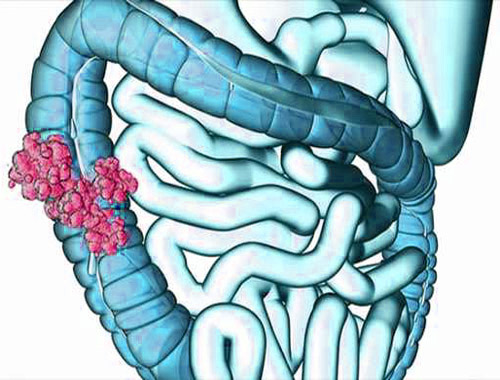Colon Cancer, colorectal cancer

Published: 18 Jun 2025
ICD9: 153.5 ICD10: C18.1 ICD11: 2B90
"Colon cancer" and "colorectal cancer" are often used interchangeably, but there's a slight distinction.
Here's the breakdown:
![]() Colorectal cancer: This is the umbrella term that includes all cancers affecting the colon and the rectum.
Colorectal cancer: This is the umbrella term that includes all cancers affecting the colon and the rectum.
![]() Colon cancer: This specifically refers to cancer that originates in the colon.
Colon cancer: This specifically refers to cancer that originates in the colon.
Since the colon and rectum are part of the same digestive system, cancer can affect either or both, and the terms are frequently used together. When someone says "colon cancer," they often mean "colorectal cancer" in general.
Key Points:
![]() Location: The colon is the long, tube-like organ that removes water and some nutrients from partially digested food. The rectum is the final section of the large intestine, connecting the colon to the anus.
Location: The colon is the long, tube-like organ that removes water and some nutrients from partially digested food. The rectum is the final section of the large intestine, connecting the colon to the anus.
![]() Treatment: Treatment for colon and rectal cancer can be similar, but there are some differences depending on the exact location and stage of the cancer.
Treatment: Treatment for colon and rectal cancer can be similar, but there are some differences depending on the exact location and stage of the cancer.
![]() Screening: Screening for colorectal cancer is crucial for early detection and prevention. Regular screenings (e.g., colonoscopies, stool tests) are recommended starting at age 45 for most people.
Screening: Screening for colorectal cancer is crucial for early detection and prevention. Regular screenings (e.g., colonoscopies, stool tests) are recommended starting at age 45 for most people.
![]() Risk factors: Several factors can increase the risk of colorectal cancer, including:
Risk factors: Several factors can increase the risk of colorectal cancer, including:![]()

![]() Age
Age![]()

![]() Family history of colorectal cancer or polyps
Family history of colorectal cancer or polyps![]()

![]() Personal history of inflammatory bowel disease (IBD)
Personal history of inflammatory bowel disease (IBD)![]()

![]() Certain genetic syndromes
Certain genetic syndromes![]()

![]() Diet (high in red and processed meats, low in fiber)
Diet (high in red and processed meats, low in fiber)![]()

![]() Obesity
Obesity![]()

![]() Smoking
Smoking![]()

![]() Alcohol consumption
Alcohol consumption![]()

![]() Lack of physical activity
Lack of physical activity
Symptoms:
Symptoms of colorectal cancer can vary depending on the size and location of the tumor. Some common symptoms include:
![]() A persistent change in bowel habits (diarrhea, constipation, or a change in stool consistency)
A persistent change in bowel habits (diarrhea, constipation, or a change in stool consistency)
![]() Rectal bleeding or blood in the stool
Rectal bleeding or blood in the stool
![]() Persistent abdominal discomfort (cramps, gas, or pain)
Persistent abdominal discomfort (cramps, gas, or pain)
![]() A feeling that your bowel doesn't empty completely
A feeling that your bowel doesn't empty completely
![]() Weakness or fatigue
Weakness or fatigue
![]() Unexplained weight loss
Unexplained weight loss
Important Note: These symptoms can also be caused by other conditions. If you experience any of these symptoms, it's essential to see a doctor for diagnosis.
In summary: Colorectal cancer is a broad term encompassing cancers of both the colon and rectum, while colon cancer specifically refers to cancer in the colon. Early detection through screening is vital for improving outcomes.